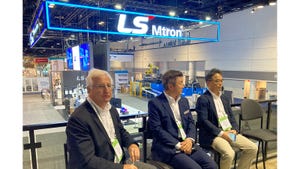Mold Lien Act amendment a problem for Detroit automakers
Would it surprise anyone to hear that the “Big Three” are not in favor of any mold lien bills? And that the Detroit automakers will challenge these amendments? They will pay their lobbyists handsomely to ensure that the amendment to the existing Mold Lien Acts currently on the books do not pass.
April 6, 2009
Would it surprise anyone to hear that the “Big Three” are not in favor of any mold lien bills? And that the Detroit automakers will challenge these amendments? They will pay their lobbyists handsomely to ensure that the amendment to the existing Mold Lien Acts currently on the books do not pass. The only reason that the Michigan Mold Lien Act passed both the House and Senate when several years ago, as a means to give mold manufacturers more clout in getting paid for molds of which they no longer had possession, is that the process was kept tightly under wraps until after the vote. Secrecy was the name of the game, because the members of the American Mold Builders Association in Michigan, who were responsible for the Michigan Mold Lien Act, knew that if word leaked out that a mold lien law with more teeth in it was about to become law, the Detroit automakers would use their influence to stop it.
However, the amendment to the current Mold Lien Laws (both the Michigan Mold Lien Act and an older law on the books) appears to be dead—killed by none other than the used-to-be Big Three. In spite of their troubles, it seems they still have clout in Michigan.
It also seems that officials have a difficult time understanding why mold manufacturers would want any such laws in the first place. After all, there’s no problem with payment terms. Say what? Not a problem?
Mold manufacturers work on tooling for model years well in advance—maybe two years out. They are told they will be paid after PPAP (Pre-Production Approval Process). The big problem is that no one knows when PPAP takes place. It’s not an exact timeline, say moldmakers, that can be counted on but rather some ambiguous date out in the future. And the big stall comes in trying to find out if and when PPAP has happened. In many cases, the moldmaker has already performed a quality check on the mold and molded parts to ensure the mold makes conforming parts! So, it’s not like this is the “mystery mold” and it takes PPAP to solve the puzzle of whether or not it works.
It’s almost as if the goal of the automakers is to keep the mold manufacturers in the dark. If you want to know what being a mushroom is like, ask any moldmaker who does work for the Detroit auto industry.
Mold Lien Acts wouldn’t be necessary if the Detroit auto makers would pay for their molds in a timely manner, or track PPAP, sending a moldmaker a check the day after the process is complete—many times it’s up to the mold manufacturer to keep calling and asking if PPAP has happened yet, which raises their frustration level. Or, if the Tier Ones who often take possession of the molds and ultimately perform PPAP would send the money through to the moldmaker rather than hold onto it to use for their own operating expenses while telling the moldmakers the OEM hasn’t paid for the mold yet.
Since all of that is a problem (yes, Detroit, it is a problem!), the mold, tool and die industry has had to resort to such “extreme” measures as to develop a means to repo the mold until payment is made. Hmmm … the auto makers should know something about “repo men.” —[email protected]
About the Author(s)
You May Also Like




